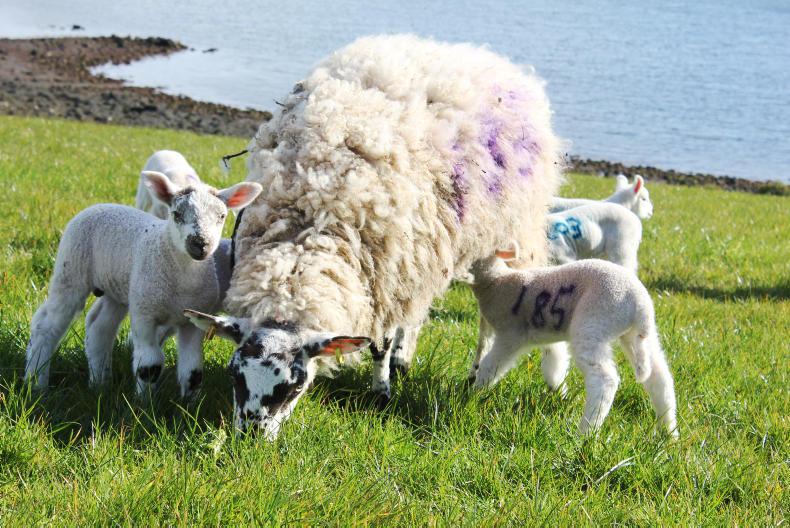There is probably little point rehearsing the arguments played out in the run-up to the EU referendum in 2016, other than to say that those who suggested that the UK could leave the EU and still effectively retain the benefits of membership, were at best, deluded.
We are currently seeing the same populist politics in the debate around climate change legislation in NI. Some of our politicians have obviously decided it is a vote-winner, so are happy to dismiss expert advice. Have we learned nothing from the past five years?
That expert advice has come from the UK Climate Change Committee, which has recommended to DAERA that NI needs to cut carbon emissions by 82% as part of our overall contribution to the UK net zero target by 2050.
In recent weeks, we have reported on how challenging this will be for all of society in NI, and the potential implications for farmers, with almost half of farmland in NI taken out of production.
Why import meat and dairy from another country, when we already produce it efficiently here?
Despite that, we have four main political parties in NI (excluding the DUP) bringing forward a private members’ bill with a target for NI to be net zero by 2045, and one leader even suggesting a 2035 net zero target. Given that agriculture currently accounts for 27% of emissions, to achieve net zero by 2035 would decimate livestock production in NI.
So what are we going to eat? Why import meat and dairy from another country, when we already produce it efficiently here?
As farmers, we accept that we will have to do things differently, and have to reduce our reliance on imported feed and fertilisers into the future. But there also has to be acknowledgement that much of NI is suited for growing grass for livestock, not peas and beans. And as a society we need to recognise there is a significant difference between emissions related to something we need (such as food), and emissions that are simply wasteful.
Read more
The price of cheap food - no simple solution
The practical reality of the NI Protocol
There is probably little point rehearsing the arguments played out in the run-up to the EU referendum in 2016, other than to say that those who suggested that the UK could leave the EU and still effectively retain the benefits of membership, were at best, deluded.
We are currently seeing the same populist politics in the debate around climate change legislation in NI. Some of our politicians have obviously decided it is a vote-winner, so are happy to dismiss expert advice. Have we learned nothing from the past five years?
That expert advice has come from the UK Climate Change Committee, which has recommended to DAERA that NI needs to cut carbon emissions by 82% as part of our overall contribution to the UK net zero target by 2050.
In recent weeks, we have reported on how challenging this will be for all of society in NI, and the potential implications for farmers, with almost half of farmland in NI taken out of production.
Why import meat and dairy from another country, when we already produce it efficiently here?
Despite that, we have four main political parties in NI (excluding the DUP) bringing forward a private members’ bill with a target for NI to be net zero by 2045, and one leader even suggesting a 2035 net zero target. Given that agriculture currently accounts for 27% of emissions, to achieve net zero by 2035 would decimate livestock production in NI.
So what are we going to eat? Why import meat and dairy from another country, when we already produce it efficiently here?
As farmers, we accept that we will have to do things differently, and have to reduce our reliance on imported feed and fertilisers into the future. But there also has to be acknowledgement that much of NI is suited for growing grass for livestock, not peas and beans. And as a society we need to recognise there is a significant difference between emissions related to something we need (such as food), and emissions that are simply wasteful.
Read more
The price of cheap food - no simple solution
The practical reality of the NI Protocol






 This is a subscriber-only article
This is a subscriber-only article











SHARING OPTIONS: